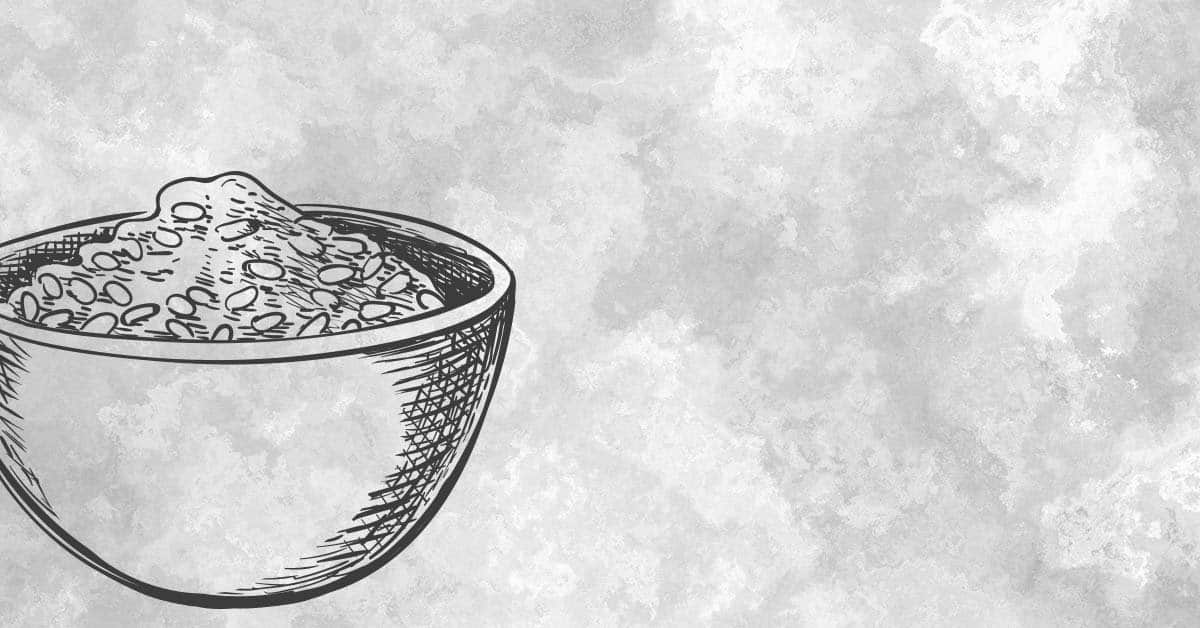Christianity is the largest religion in the world, with almost a third of the global population claiming to be followers of Jesus. Why, then, is there so much corruption, injustice, and evil in the world? How can we see a greater reflection of God in our daily lives?
When Jesus taught His disciples to pray, He encouraged them to ask, “Your Kingdom come, your will be done, on earth as it is in heaven,” (Matthew 6:10) So, we know God’s will is for the culture of Heaven to invade earth. As followers of Christ, our mission is to partner with God to make that prayer a reality.
Unfortunately, I think the lack of global Christian influence indicates that we’ve misinterpreted how to follow the will of God for our lives. Again, there are many ways we have done this— “all have sinned, and come short of the glory of God.” (Romans 3:23)
In this article, I am going to focus on how Christians have misinterpreted God’s intent for their finances, specifically in their giving. You will learn:
– What a manna mindset is in the context of the Israelites and the Promised Land.
– Manna from the Bible and how it applies to your spiritual growth
– Two types of money—devotional and transactional—and the negative impact the latter has made in developing countries.
– How to use your transactional money to make a sustainable difference for the Kingdom of God with the 7 Mountains of Influence.
Manna from the Bible
We can learn a lot about God’s will for our lives from studying the Israelites’ journey into the Promised Land in the Old Testament. The Book of Exodus details how God miraculously rescued the Israelites out from slavery in Egypt. Just a few days into their journey, however, the Israelites got hangry and focused on the negative:
“And the whole congregation of the people grumbled against Moses and Aaron in the wilderness,
and the people of Israel said to them, “Would that we had died by the hand of the Lord in the land
of Egypt, when we sat by the meat pots and ate bread to the full, for you have brought us out into
this wilderness to kill the whole assembly with hunger.” (Exodus 16:2-3)
God’s response to their complaining wasn’t angry. In his kindness, He proved how faithful, kind, and trustworthy He was by raining down bread from heaven that tasted like wafers with honey. They called it manna. This happened every day (except the Sabbath) that the Israelites were in the wilderness for the entire 40 years!
The manna was undoubtedly a miracle. However, I don’t think it represented the full measure of His plans for His people. It was a stepping stone to something greater. For a God who created every food in existence, manna was the minor leagues. Can you imagine surviving off of wafer crackers for 40 years?
However, God in all His wisdom knew that manna was what the Israelites needed at the time. I don’t think they were equipped in their mindset to handle a bigger blessing yet. Their journey to the Promised Land was a time where God refined their trust and obedience. He had to ‘get the Egypt out of them,’ so to speak—a little hunger made them wish they were slaves again! (Before you judge them, how often do we crave the captivity of comfort over God’s will for our lives?)
So, a manna mindset is based in spiritual immaturity. Someone with a manna mindset constantly asks, “Are you there, God? If so, prove it!” It’s okay to start here. We all do. However, we all reflect the image of God, our Provider, too. As we grow in spiritual maturity, He moves us out of a manna mentality so we can provide for others like He does. When you move out of a manna mentality, you become a producer, not just a consumer. In the following passage, you will see how the Israelites underwent this process.
The Produce of the Land
“While the people of Israel were encamped at Gilgal, they kept the Passover on the fourteenth day
of the month in the evening on the plains of Jericho. And the day after the Passover, on that very
day, they ate the produce of the land, unleavened cakes, and parched grain. And the
manna ceased the day after they ate the produce of the land. There was no longer manna for the
people of Israel, but they ate the fruit of the land of Canaan that year.” (Joshua 5:10-12)
This passage is pregnant with revelation. The Israelites’ 40-year journey through the wilderness and into the Promised Land was over. They made it. Their new season was initiated by eating produce from their new home. Now they didn’t eat crackers that tasted like honey—they built houses in a land that was flowing with it! (Deut. 31:20) The meal signified two things: the fulfillment of God’s promise, and the Israelites spiritual growth.
After a time of testing in the wilderness, God had brought the Israelites to a point of spiritual maturity. Now, they were ready to build something with Him rather than solely receiving. Now that they were in the Promised Land, they didn’t need manna anymore. They could cultivate their own gardens, raise their own livestock, and serve at their own tables. Getting the Israelites to the Promised Land wasn’t the end of the story–it was just the beginning.
Your Promised Land
Similarly, God has called you into a Promised Land. There is a divine plan and promise for your life, and just like the Israelites, there will be a time of testing and wandering as well. While you seek out God’s calling for your life, wait, and develop your character, there will be seasons where you are more dependent on God’s daily provision than others. However, God’s will for your life is for you to graduate beyond manna—that you would learn to obey and trust Him in the wilderness so that you can prosper in the land that He has for you.
Getting to the Promised Land is essential for receiving the promise. However, we can’t continue to wander and feel entitled to manna as our birthright. The manna isn’t the birthright, it’s an appetizer. The land is the inheritance–the main course. When Jesus said, “the Kingdom of Heaven is at hand,” (Matthew 4:17) it meant that part of our inheritance is activated now. Being saved and redeemed in Christ means that we get to share in the vision God has for the world and partner as His stewards and representatives.
God dropping gifts onto our laps is not the extent of heavenly wealth. We are called to create environments that serve as an invitation for others to taste and see that the Lord is good. We are commissioned to do as God did. Not only to reap from the harvest of our work, but to plant and feed God’s sheep–the people God loves, whether they know Him yet or not.
It’s nice to receive financial miracles. They build our faith and give us confidence that God is a good Provider who is invested in our lives. However, at some point wouldn’t you like to be the one God uses to bestow financial miracles?
Devotional and Transactional Money
Many Christians stay stuck in a manna mindset their whole lives. They see God as a Provider who rains down the occasional timely blessing rather than a Provider who wants to partner with them to build something sustainable. Their view of their financial relationship with God trickles into their giving. Instead of using their generosity to build something sustainable, they use their generosity for sporadic rather than strategic giving. Then, the recipients of those blessings get stuck in a manna mindset as well—commonly known as a welfare mentality. Our giving doesn’t empower others because we don’t feel empowered by God. We can’t give what we haven’t received.
(It is important to note that this is a general overview of how finances typically work in Churches and ministries. I definitely support giving and tithing as the Holy Spirit leads. However, I want to provide a different roadmap as Christians grow in their capacity to give.)
Another way of describing this trickle-down effect is through examining the two types of money people use for their giving: devotional and transactional money.
Devotional Money: The tithes, offerings, and donations that are freely given and received.
Transactional Money: Money you earn or create through your job or passive income.
One of the biggest structural issues in the Church today is that people don’t understand how money comes to them. This is true for a lot of church leaders who struggle to build the finances of their organization, but it’s true for a lot of congregants, too. Many people think that the devotional money they give will come back to them devotionally. However, I’ve found that God typically returns the devotional money we give back to us through transactional money. Let me explain.
There’s a common belief among the Christian faith about seed giving. To sum it up, when people give a seed faith offering, they believe God will multiply their money and return it to them. Preachers who call for a seed faith offering often quote from the Parable of the Sower: “But those that were sown on the good soil are the ones who hear the word and accept it and bear fruit, thirtyfold and sixtyfold and a hundredfold,” (Mark 4:20.) The first issue with this is that the verse isn’t necessarily referring to a financial return. Jesus is talking about spiritual fruitfulness. However, many people think that after they give, their money will come back to them devotionally. In other words, they think someone will randomly hand them $100 or they’ll receive an anonymous check in the mail.
Sometimes we expect a harvest without doing the hard work of tilling the soil. The reality is that we have to work the land that God has given us if we want a return! God often blesses us transactionally through the work He has called us to do. It could be a bonus at work or the growth of our business. As in, we sow into someone else’s Kingdom work with our giving and then God blesses the Kingdom work we do, too, so there is a continual flow between the Body of redeeming and perfection God’s world.
How a Manna Mindset Affects Missions
In the past, there has been too much devotional money poured into Africa that has crippled economies. In her book, Dead Aid, Dambisa Moyo, Ph.D., reveals that over US$1 trillion in developmental-related aid has been transferred from rich countries to Africa. She writes, “In fact, the recipients of this aid are worse off; much worse off. Aid has helped make the poor poorer, and growth slower. Yet aid remains a centerpiece of today’s development policy and one of the biggest ideas of our time.”
People have given billions of dollars, but they haven’t created an equivalent number of systems to sustain and direct that money. People often throw $100 to missions they know nothing about. That’s why it’s so powerful when a Christian becomes financially free. When you learn how to build wealth through consistent passive income, not only do you have an abundance of resources to give away—you have enough to substantially change the systems that cause poverty, pain, and injustice. Because financial freedom provides you with enough income to quit your job if you’d like, you have an abundance of time to allocate towards developing your strategy as well.
A Sustainable Solution
We created Tricord Global because we wanted to use the wisdom and resources God had given us to help create a better financial system in developing countries. If you don’t know, Tricord Global currently provides Microfinance loans and business education to people in Uganda. Instead of giving money away, Tricord partners with local banks to empower people to build wealth and businesses that residually provide a positive impact to their communities. On the other side of things, our investors make a difference through the capital they provide and they also receive a 4-8% return on their investment.
It’s the same concept as teaching a man to fish rather than giving him a fish. This is especially powerful in Uganda, where it’s extremely difficult to access capital. If you are fortunate enough to get a loan, the interest rates are well above 30% APR. And for Christians, there is financial persecution that makes it even harder. Our Microfinance loans provide a much better interest rate that gives people the room to build wealth. And, it gives Ugandan Christians the ability to shape culture through their businesses.
Instead of giving devotionally and receiving devotionally, Tricord has investors who give transactionally and receive transactionally. The results are Ugandan business owners who receive the blessings of God transactionally through their business. Then, they are able to give back to their communities through transactional money as well. It’s the transactional money that has a truly transformational impact.
7 Mountains of Influence
Every country has needs. There are systems that need to be reformed and marginalized people that need help. At the mention of this, a specific cause probably comes to your mind or pulls on your heartstrings. If you’re following God, He will share His dreams with you. He will speak to you about the world He wants to create, and He will show you what role you play in that grand design. Then, He will give you people to run with and wisdom to see the vision through. It’s a wonderful partnership. I believe this is how we bring God’s Kingdom to Earth in a tangible way like Matthew 6:10 says.
I was drawn to reform business, but there are several other spheres of influence in society that may speak to you. The 7 Mountains of Influence is a paradigm for thinking about how we can partner with God to bring heaven to earth. Essentially, the 7 Mountains of Influence are the main areas that impact culture: government, business, education, family, media, religion, and arts.
Money is a necessity in every mountain. Redeeming society isn’t cheap, and there are spiritual forces of darkness that are trying to keep Christian influence out of culture (Ephesians 6:12). The cost includes money, but it goes beyond that as well (after all, Jesus died on the cross for it.) We honor His sacrifice and live in His example by dying to our own self and dedicating our time, energy, and finances. You’re not going to drift to the top of the mountain. You have to be intentional about what God wants to do in your life. So how do you climb the mountain?
1. We invest in ourselves and learn how to build wealth. Learn everything you can, spend deep time with the Lord, and ask Him to help you discern the path He has for your life. [Related Post: How to Get Order in Your Life]
2. Get in the game. Start investing your time into the areas God has called you to. Begin to build wealth through investing your finances and building passive income.
3. Learn how to give out of your wealth rather than your income. In other words, give more than 10%. Once you build enough passive income to pay for your cost of living, you’ll be financially free. At this point, you can give 100% of your excess away.
4. Use your wealth, experience, and time to climb to the top of the mountain God has called you to reform. Enter into your Promised Land! At this stage, you partner with people who are on a similar mission. You’re able to use your transactional money to produce transactional money for the Kingdom. The result will transformational; a system that produces spiritual fruit over and over again. Imagine what the world will look like in the coming generations if Christians start thinking this way!
What’s your Promised Land? How has God broken you out of a manna mindset? I’d love to hear more about your journey in the comments.
[Read Next: The Cycle of Success: Knowledge, Understanding, and Wisdom]






